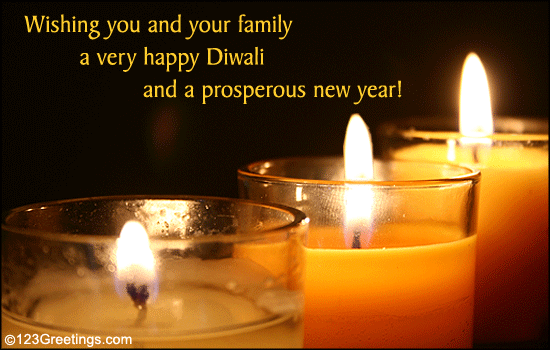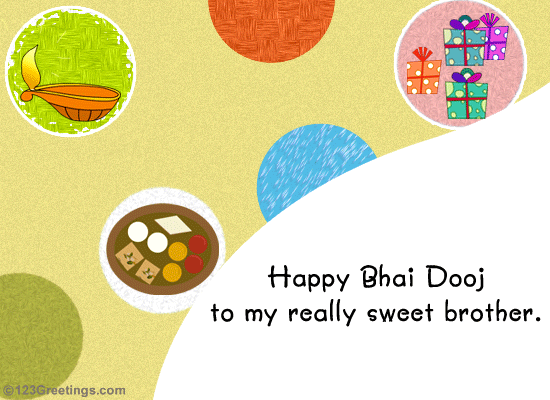welcome friends
Diwali (or Deepavali) is a major Indian holiday, and a significant festival in Hinduism, Sikhism, Buddhism, and Jainism. Many legends are associated with Diwali. Today it is celebrated by Hindus, Jains, and Sikhs across the globe as the "Festival of Lights," where the lights or lamps signify victory of good over the evil within every human being. Diwali is celebrated on the fifteenth day of the month Kartika.
In many parts of India, it is the homecoming of Lord Ram of Ayodhya after a 14-year exile in the forest, after he defeated the evil and demonic Ravan. The people of Ayodhya (the capital of his kingdom) welcomed Ram by lighting rows (avali) of lamps (deeva), thus its name: Deepavali. This word, in due course, became Diwali in Hindi. But, in South Indian languages, the word did not undergo any change, and hence the festival is called Deepavali in southern India. There are many different observances of the holiday across India.
Jainism marks Diwali as the nirvana of Lord Mahavira, which occurred on 15 October, 527 BCE.
Among the Sikhs, Diwali came to have special significance from the day the town of Amritsar was illuminated on the return to it of Guru Hargobind (1595-1644) who had been held captive in the Fort at Gwalior under the orders of the Mughal emperor, Jahangir (1570-1627). As the sixth Guru (teacher) of Sikhism, Guru Hargobind Ji, was freed from imprisonment - along with 53 Hindu Kings (who were held as political prisoners) whom the Guru had arranged to be released as well. After his release he went to the Darbar Sahib (Golden Temple) in the holy city of Amritsar, where he was welcomed in happiness by the people who lit candles and diyas to greet the Guru. Because of this, Sikhs often refer to Diwali also as Bandi Chhorh Divas - "the day of release of detainees."
The festival is also celebrated by Buddhists of Nepal, particularly the NewarBuddhists.
In India, Diwali is now considered to be a national festival, and the aesthetic aspect of the festival is enjoyed by most Indians regardless of faith



Diwali celebrations are spread over five days in India and all over the world. All the days except Diwali are named according to their designation in the Hindu calendar.
Vasu Baras (27 Ashvin or 12 Krishna Paksha Ashvin): Baras means 12th day and vasu means cow. On this day cow and calf is worshipped. Since it is believed that cow is symbol of God, Diwali is begun by worshipping cow and calf. Dhanatrayodashi or Dhan teras (28 Ashvin or 13 Krishna Paksha Ashvin): Dhan means "wealth" and Trayodashi means "13th day". Thus, as the name implies, this day falls on the 13th day of the second half of the lunar month. It is an auspicious day for shopping of utensils and gold.This day is also regarded as the Jayanti of God Dhanvantri who came out during the churning of the great ocean by the gods and the demons. Dhanvantri Jayanti Naraka Chaturdashi (29 Ashvin or 14 Krishna Paksha Ashvin): Chaturdashi is the fourteenth day on which demon Narakasura was killed. It signifies the victory of good over evil and light over darkness (Gujarati: Kali Chaudas, Rajasthan : Roop Chaudas).
In south India, this is the actual day of festivities. Hindus wake up way before dawn as early as 2:00 in the morning, have a fragrant oil bath and wear new clothes. They light small lamps all around the house and draw elaborate kolams /rangolis outside their homes. They perform a special puja with offerings to Lord Sri Krishna or Lord Sri Vishnu, as he liberated the world from the demon Narakasura on this day. It is believed that taking a bath before sunrise, when the stars are still visible in the sky is equivalent to taking a bath in the holy Ganges. Hence, when people greet each other in the morning, they ask "Have you performed your Ganga Snaanam?".
After the puja, children burst firecrackers heralding the defeat of the demon. As this is a day of rejoicing, many will have very elaborate breakfasts and lunches and meet family and friends. In the evening, lamps are again lit and Goddess Lakshmi is worshipped and offered special dishes. This being a no moon day, many will offer special tarpana (offerings of water and sesame seeds) to their ancestors. This day is also called as Roop Chaturdashi Lakshmi Puja (30 Ashvin or 15 Krishna Paksha Ashvin): Lakshmi Puja marks the most important day of Diwali celebrations in North India. Hindu homes worship Lakshmi, the goddess of wealth, and Ganesh, the God of auspicious beginnings, and then light lamps all across the streets and homes to welcome prosperity and wellbeing. Govardhan Puja (1 Kartika or 1 Shukla Paksha Kartika) : Also called Annakut, is celebrated as the day Krishna defeated Indra. Lord Krishna taught people to worship nature, as mountains bring rains to earth. That was the reason to stop worshiping Indra. His was the message that we should take care of our nature. For Annakut a mountain of food is decorated symbolizing Govardhan mountain lifted by Lord Krishna. In Maharashtra it is celebrated as Padva or BaliPratipada. The day commemorates King Bali. Men present gifts to their wives on this day.In Gujarat, it is celebrated as New Year, as Vikram Samvat starts on this day. - Bhaiduj (also Bhayyaduj, Bhaubeej or Bhayitika) (2 Kartikaor 2 Shukla Paksha Kartika): on this day, brothers and sisters meet to express their love and affection for each other (Gujarati: Bhai Bij, Bengali: Bhai Phota). Most Indian festivals bring together families, Bhaiduj brings together married sisters and brothers, and is a significant festive day for them. This festival is ancient, and pre-dates 'Raksha Bandhan' another brother-sister festival celebrated in the present day.
 This one to all the brothers on IF
This one to all the brothers on IF  Enjoy this festivities with good food, lots of diyas and fire crackers. Spread your good will to less fortunate and be safe around diyas and fire crackers
Enjoy this festivities with good food, lots of diyas and fire crackers. Spread your good will to less fortunate and be safe around diyas and fire crackers 


Diwali celebrations are spread over five days in India and all over the world. All the days except Diwali are named according to their designation in the Hindu calendar.
- Vasu Baras (27 Ashvin or 12 Krishna Paksha Ashvin): Baras means 12th day and vasu means cow. On this day cow and calf is worshipped. Since it is believed that cow is symbol of God, Diwali is begun by worshipping cow and calf. Dhanatrayodashi or Dhan teras (28 Ashvin or 13 Krishna Paksha Ashvin): Dhan means "wealth" and Trayodashi means "13th day". Thus, as the name implies, this day falls on the 13th day of the second half of the lunar month. It is an auspicious day for shopping of utensils and gold.This day is also regarded as the Jayanti of God Dhanvantri who came out during the churning of the great ocean by the gods and the demons. Dhanvantri Jayanti Naraka Chaturdashi (29 Ashvin or 14 Krishna Paksha Ashvin): Chaturdashi is the fourteenth day on which demon Narakasura was killed. It signifies the victory of good over evil and light over darkness (Gujarati: Kali Chaudas, Rajasthan : Roop Chaudas).
- Bhaiduj (also Bhayyaduj, Bhaubeej or Bhayitika) (2 Kartikaor 2 Shukla Paksha Kartika): on this day, brothers and sisters meet to express their love and affection for each other (Gujarati: Bhai Bij, Bengali: Bhai Phota). Most Indian festivals bring together families, Bhaiduj brings together married sisters and brothers, and is a significant festive day for them. This festival is ancient, and pre-dates 'Raksha Bandhan' another brother-sister festival celebrated in the present day.
In south India, this is the actual day of festivities. Hindus wake up way before dawn as early as 2:00 in the morning, have a fragrant oil bath and wear new clothes. They light small lamps all around the house and draw elaborate kolams /rangolis outside their homes. They perform a special puja with offerings to Lord Sri Krishna or Lord Sri Vishnu, as he liberated the world from the demon Narakasura on this day. It is believed that taking a bath before sunrise, when the stars are still visible in the sky is equivalent to taking a bath in the holy Ganges. Hence, when people greet each other in the morning, they ask "Have you performed your Ganga Snaanam?".
After the puja, children burst firecrackers heralding the defeat of the demon. As this is a day of rejoicing, many will have very elaborate breakfasts and lunches and meet family and friends. In the evening, lamps are again lit and Goddess Lakshmi is worshipped and offered special dishes. This being a no moon day, many will offer special tarpana (offerings of water and sesame seeds) to their ancestors. This day is also called as Roop Chaturdashi Lakshmi Puja (30 Ashvin or 15 Krishna Paksha Ashvin): Lakshmi Puja marks the most important day of Diwali celebrations in North India. Hindu homes worship Lakshmi, the goddess of wealth, and Ganesh, the God of auspicious beginnings, and then light lamps all across the streets and homes to welcome prosperity and wellbeing. Govardhan Puja (1 Kartika or 1 Shukla Paksha Kartika) : Also called Annakut, is celebrated as the day Krishna defeated Indra. Lord Krishna taught people to worship nature, as mountains bring rains to earth. That was the reason to stop worshiping Indra. His was the message that we should take care of our nature. For Annakut a mountain of food is decorated symbolizing Govardhan mountain lifted by Lord Krishna. In Maharashtra it is celebrated as Padva or BaliPratipada. The day commemorates King Bali. Men present gifts to their wives on this day.In Gujarat, it is celebrated as New Year, as Vikram Samvat starts on this day.




































